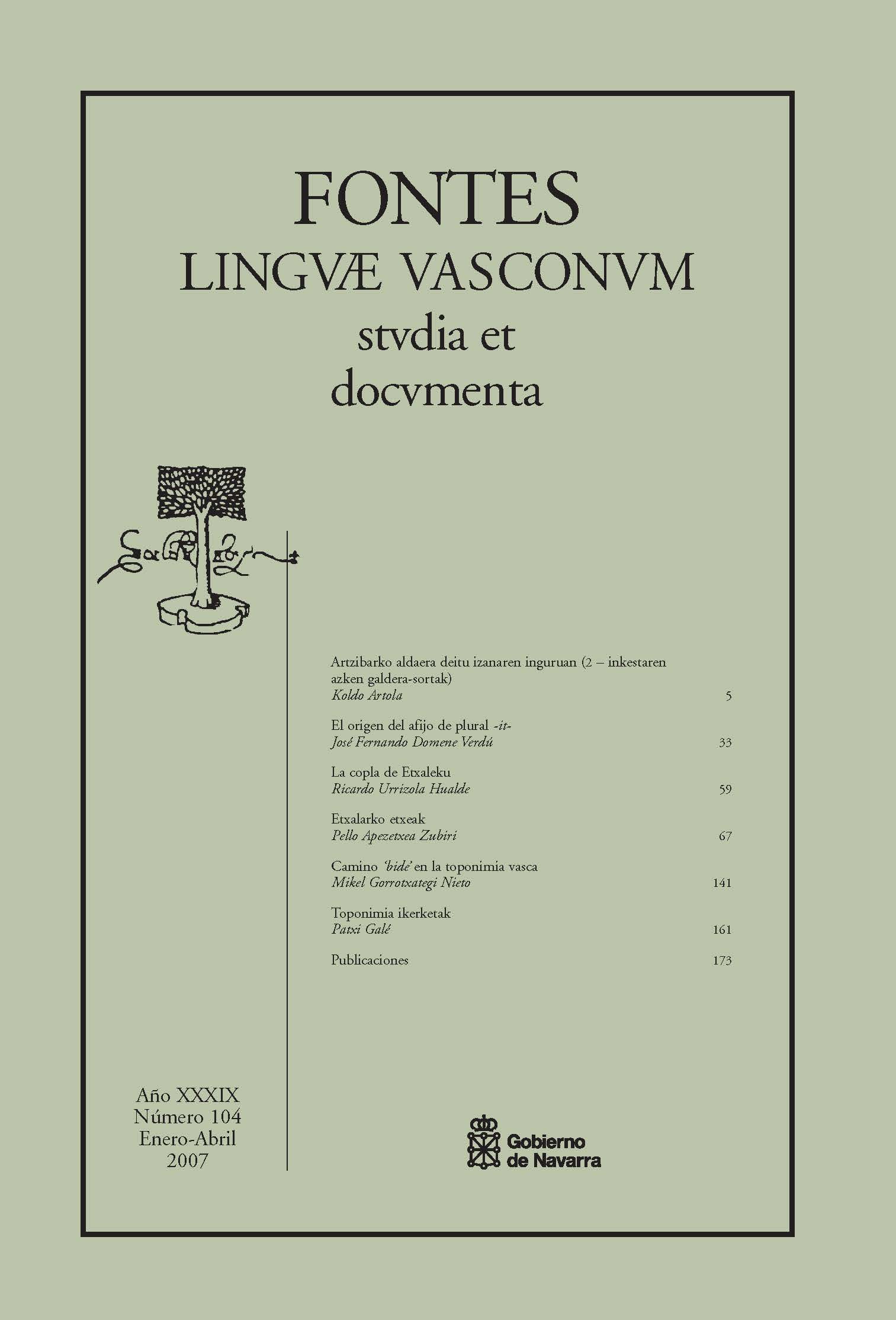Toponimia ikerketak
Abstract
This article aims to highlight the need to thoroughly revise the current studies of toponymy in terms of the purposes pursued and working methods. To this end, there is a brief presentation which expressly intends to demonstrate the need for and usefulness of this type of research in the present day, particularly in the Basque country, where the normalisation of the indigenous language –and in some territories, co-official language– has proven to be a longer, harder path than one might naively have expected not so long ago. Following a brief description of the different phases or stages traditionally employed in toponymic research, there is a short critical commentary of certain attitudes, observed while studying work of this kind, harboured by the ac tive agents of research, be they those funding the study, the researchers them - selves, informants, users or managers of the end product. Finally, the role which The Royal Academy of the Basque Language/Euskaltzaindia can play in this research work as an academic body capable of guaranteeing the quality of the process and its results is indicated. By no means does the article intend to deal with the subject exhaustively; it simply hopes to open up a debate, both necessary and permanently avoided due to interests and conveniences of different kinds. For this reason, the aspects criticised in the article are presented more as examples than as part of an exhaustive analysis, which does not divest them of significance as testimony of the dynamics displayed, consciously or not, in the work of the promoters, researchers and users of toponymic research
##about.statistics##
Copyright (c) 2007 Patxi Galé

This work is licensed under a Creative Commons Attribution-NonCommercial 4.0 International License.







